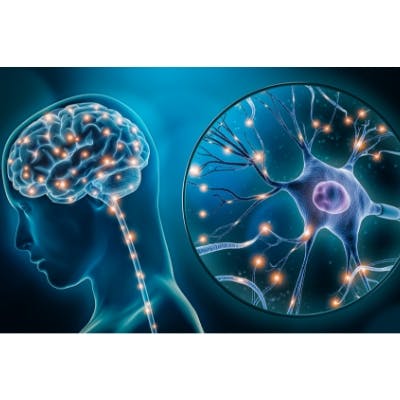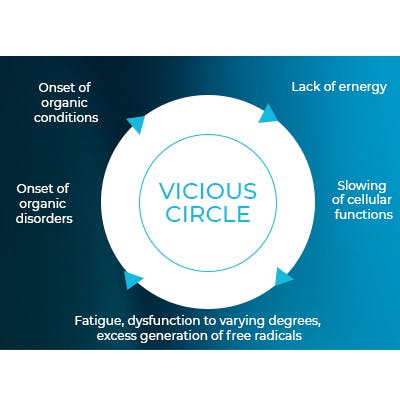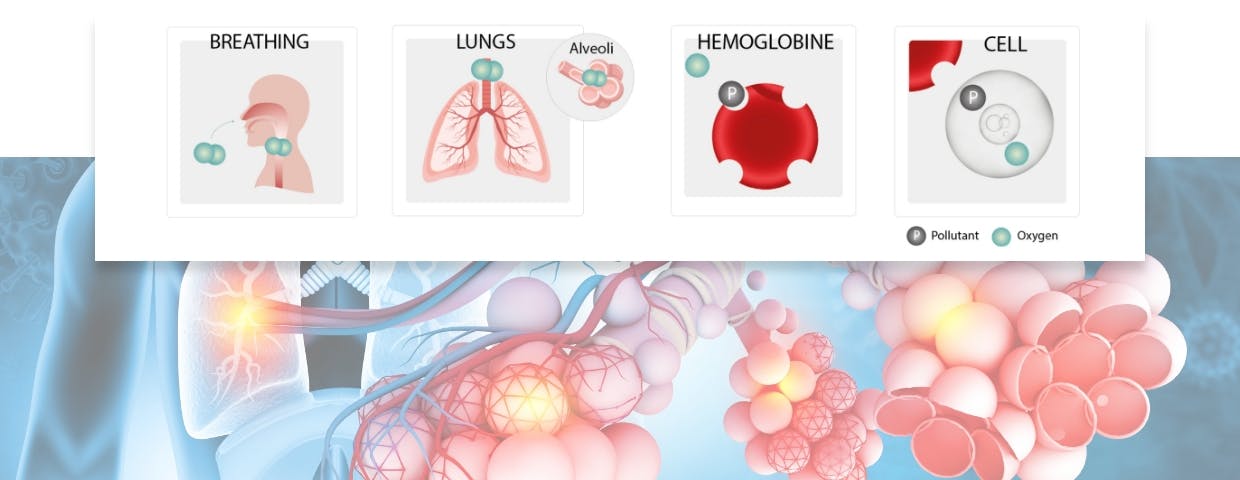Hypoxia affects us all

What is under-oxygenation?
Hypoxia is defined as a reduction in oxygen supply to the tissues, while hypoxemia is a decrease in the concentration of oxygen in the blood. Hypoxia is the consequence of hypoxemia. It occurs when the oxygen supply is too low compared to what the cells require. Even if there is a sufficient quantity of oxygen in the air, and even if the body compensates for this lack by breathing more deeply or faster, the body no longer assimilates it correctly.
This is what happens in many situations:
> Air pollution and smoking
Pollutants line the airways and slow down gas exchange. Others, like carbon monoxide, take the place of oxygen on hemoglobin.
> Disease
Many conditions are a source of hypoxia, in particular respiratory and circulatory diseases.
> Stress
Stress greatly increases the oxygen demand of tissues. Respiration speeds up at the same time as there is an increased production of excess free radicals which prevents the body from adapting to the situation and ultimately results in hypoxia.
> Intense physical exercise
The body can no longer meet the energy demand.
> Sedentary lifestyle
Movement speeds up blood circulation and allows for better gas exchange. A lack of tissue oxygen is linked to a sedentary lifestyle.
> Ageing
Throughout life, the body's overall ability to use the oxygen provided by respiration decreases. Metabolisms are slowed down and mitochondria function less well.
> Altitude
At altitude the air becomes scarce in oxygen. To compensate for this lack, the body produces more red blood cells. However, this adaptation takes time and is not easy for all organisms.
In addition, hemoglobin only releases oxygen to the cells under certain conditions of temperature and acidity, or the level of carbon dioxide in the air: this only has to exceed 0.06% to cause hypoxia. However, this is almost always the case in cities where this rate varies between 0.09 and 0.14%.
What are the dangers of under-oxygenation?
The consequences of hypoxia are numerous. Here are a few:
> Alteration of metabolism
The lack of oxygen causes a slowdown in the production of energy in the cell. Result: biochemical reactions for the assimilation of nutrients are incomplete, waste accumulates and gradually poisons the body.
> Excess of free radicals
Mitochondria no longer function properly and metabolisms are slowed down. The body produces excess free radicals (oxidative stress). In addition, hypoxia leads to a degradation of anti-free radical defense systems: a double source of stress for the cell.
> Impact on the nervous system
The brain and the central nervous system are the biggest consumers of oxygen and therefore the first affected (the brain represents about 2% of the total weight of a man, but consumes 20% of the total energy). Hence the triggering of alarm signals, in the event of cerebral hypoxia: chronic fatigue, nervousness, memory failure, etc.

Does hypoxia lead to disease?
It all depends on the intensity of the hypoxia and its duration.
When this persists, most bodily functions are disrupted and disease sets in. The loss of vitality opens the way to the appearance of pathologies such as cardiac and circulatory disorders, chronic hepatitis, atherosclerosis, and even more serious diseases such as cancer and other degenerative pathologies. A vicious circle then sets in.
What are the consequences of excess oxygen?
In nature, which always tends towards balance, excess is as harmful as lack.
If we increase the quantity of inspired oxygen, over time this will lead to hyper-oxygenation (or hyperoxia). In the long term, this too has harmful effects on health, in particular through the excessive formation of free radicals, which cause cell damage and inflammation. The administration of pure oxygen is reserved for specific medical uses.

Spotlight on pollution
The WHO recognises that air pollution is a critical risk factor for non-communicable diseases, causing
an estimated 24% of adult deaths from heart disease,
25% of deaths attributable to stroke, 43% of deaths attributable to chronic obstructive pulmonary disease
and 29% of deaths from lung cancer.
(WHO: Breathe life – air pollution affects our health)

Pollutants have a great affinity with hemoglobin, they quickly penetrate the body and take the place of oxygen in the cell. This induces hypoxia.


